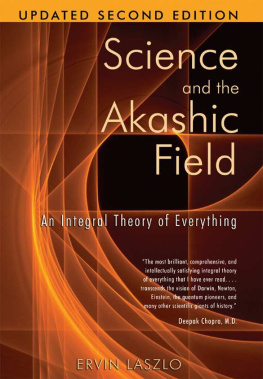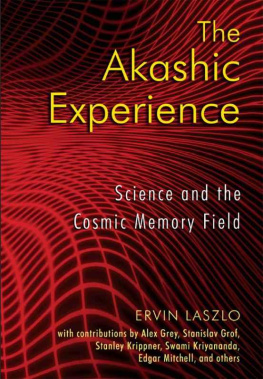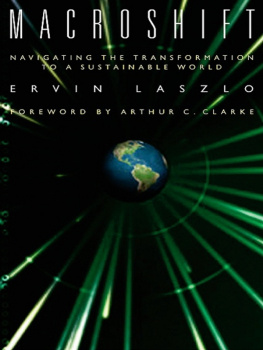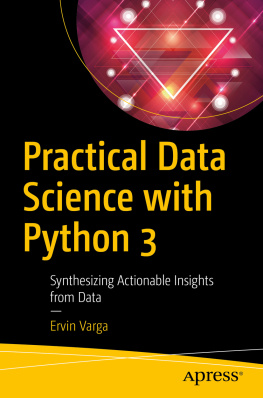Ervin Laszlo - Reconnecting to the Source
Here you can read online Ervin Laszlo - Reconnecting to the Source full text of the book (entire story) in english for free. Download pdf and epub, get meaning, cover and reviews about this ebook. publisher: St. Martins Publishing Group, genre: Religion. Description of the work, (preface) as well as reviews are available. Best literature library LitArk.com created for fans of good reading and offers a wide selection of genres:
Romance novel
Science fiction
Adventure
Detective
Science
History
Home and family
Prose
Art
Politics
Computer
Non-fiction
Religion
Business
Children
Humor
Choose a favorite category and find really read worthwhile books. Enjoy immersion in the world of imagination, feel the emotions of the characters or learn something new for yourself, make an fascinating discovery.

- Book:Reconnecting to the Source
- Author:
- Publisher:St. Martins Publishing Group
- Genre:
- Rating:5 / 5
- Favourites:Add to favourites
- Your mark:
- 100
- 1
- 2
- 3
- 4
- 5
Reconnecting to the Source: summary, description and annotation
We offer to read an annotation, description, summary or preface (depends on what the author of the book "Reconnecting to the Source" wrote himself). If you haven't found the necessary information about the book — write in the comments, we will try to find it.
Reconnecting to the Source — read online for free the complete book (whole text) full work
Below is the text of the book, divided by pages. System saving the place of the last page read, allows you to conveniently read the book "Reconnecting to the Source" online for free, without having to search again every time where you left off. Put a bookmark, and you can go to the page where you finished reading at any time.
Font size:
Interval:
Bookmark:
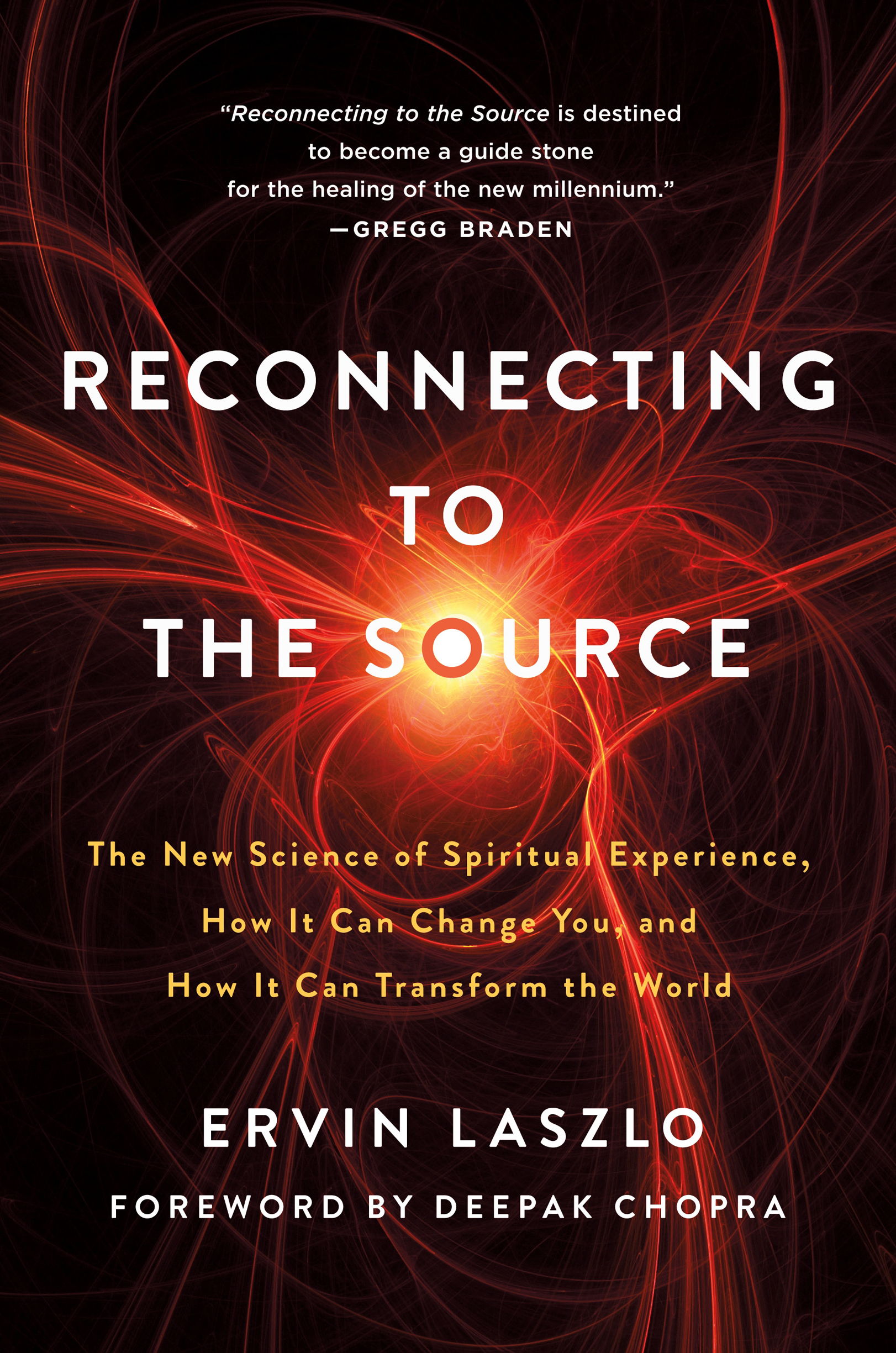

The author and publisher have provided this e-book to you for your personal use only. You may not make this e-book publicly available in any way. Copyright infringement is against the law. If you believe the copy of this e-book you are reading infringes on the authors copyright, please notify the publisher at: us.macmillanusa.com/piracy.
Is it possible that the keys to our greatest healing, and ultimately to our survival, are revealed through the synchronicities of everyday life? Could the subtle cues of dreams and intuition be natures road map to a primal and universal source of wisdom thats available always, and to everyone? If so, how do we strengthen such an essential connection in a world that seems to have strayed so far from the deepest truths of our existence?
In Reconnecting to The Source, scientist, philosopher, and futurist Ervin Laszlo answers these questions and more. In doing so, he catapults us light-years beyond conventional thinking of self-help and recovery, to the very core of personal power and how to awaken it in our lives.
Whether youre an artist or an engineer, a homemaker or a policy maker, this book is about you, your life, and every relationship youll ever experience. I have no doubt that Reconnecting to The Source is destined to become a guide stone for the healing of the new millennium.
This book is a must for any library of science and healing in the twenty-first century!
GREGG BRADEN
L AWRENCE B LOOM
D ARLA B OONE
N ICOLYA C HRISTI
J AMES O D EA
F EDERICO F AGGIN
A DRIENNE F ELLER
G UIDO F ERRARI
J ANE G OODALL
J EAN H OUSTON
B ARBARA M ARX H UBBARD
C HRISTOPHER L ASZLO
L YNNE M C T AGGART
F RDRIQUE P ICHARD
P IERRE P RADERVAND
D EAN R ADIN
M ARIA S GI
M ASAMI S AIONJI
G ARY S CHWARTZ
F REDERICK C HAVALIT T SAO
Z HI- G ANG S HA
K INGSLEY D ENNIS
S HAMIK D ESAI
M ARK G OBER
A LEXANDER L ASZLO
ERVIN LASZLO was motivated to write this book out of an urgent need. He calls it the need to reconnect to our source, a proposition that leads us to the discussion of the domains of space, time, matter, and energy. This is where science locates the physical source of everything, including the universe and every object in it.
But the scientific model lacks a human dimension, which is what Laszlo wants to restore. It is an aim that has met with scientific resistanceusually very heated resistancefor a long time, creating a wall that separates the physical world out there from the subjective world in here.
To the vast majority of working scientists, theres no valid reason for breaking down the wall. They regard it as a matter of vital importance that science should deal in objective facts, data, measurement, and experiments. So, Einstein made history with the general theory of relativity, without regard for how he personally felt about his theory, just as Newtons theories about gravity and the mechanics of bodies in motion were of paramount importance, not his personal adherence to a fundamentalist strain of Christianity (the fact that Newton earnestly toiled to devise a timeline for Earth that began with the creation story in the book of Genesis would be a quirk of personality, not a scientific enterprise).
Science is the most successful model of reality in human history, and holding the latest iPhone in your hand or using the GPS in your car or reading about the Hubble telescope reinforces the claim that eventually the scientific model will explain everything. But models, no matter how successful, have a striking flaw. They are right about what they include and wrong about what they exclude. By shutting subjective experience out of the prevailing scientific model, we find ourselves in ignorance about what is actually happening in the human mind.
There have been calls, like this books message, to reconnect to The Source of the subjective world. In every case, it was the troubling ignorance about the human mind that motivated a few outstanding thinkers to try to bring down the Chinese wall dividing the physical from the mental. A radical attempt was voiced when the great quantum pioneer Max Planck, the German physicist who actually named the quantum, gave an interview to The Observer newspaper in London in 1931.
In that interview, Planck said, I regard consciousness as fundamental. I regard matter as derivative from consciousness. We cannot get behind consciousness. Everything that we talk about, everything that we regard as existing, postulates consciousness. In other words, consciousness is somehow The Source of the physical universe. Planck was not alone in believing this; most of the great quantum pioneers (with the notable exclusion of Einstein, a stubborn resister of quantum theory) held the belief that without the participation of a human observer, physical reality would not exist in its present form. Or to simplify things further, we live in a participatory universe, a phrase coined by a great midcentury American physicist, John Archibald Wheeler.
If these insights come as a surprise, its no wonder, because physics, as practiced by everyday working physicists, ignored what Planck, Wheeler, and a host of other illustrious names were claiming. We wound up in the arms of a paradox. Every physicist accepts that quantum mechanics is the most successful scientific theory of all time, and quantum theory effectively demolished the commonsense notion that solid physical objects exist as tangible things. Their thingness vanishes once you enter the quantum domain, where all of reality can be reduced to ripples in the quantum fieldthese excitations in the gravity field, the electron field, and the quark field are more real than matter, which is just one mode of quantum excitations.
The paradox arises from the same physicists who refuse to believe that consciousness interacts with the quantum field, shaping and governing its excitations. Yet the very theorists who discovered the quantum field held that consciousness must be part of it, not only to account for a participatory universe but to correct a huge mistake. That huge mistake is the belief that subjectivity can be excluded from the work of science. Leaving out half of existencethe mental halfseems absurd at first glance. After all, the work of science begins in here, with mental activity being generated and perceived by a human being. What could be more subjective?
Ervin Laszlo plunges us into this paradox, with the aim of correcting the gaping mistake in the scientific model. He argues that reality must be viewed as a wholeand a growing number of physicists, particularly among the younger generation, agree. There are not two regions of existence, mental and physical, separated by nature. Instead, the division of mind in here and matter out there is a human construct. It can be shown, as this book does very convincingly, that wholeness dominates nature, including human nature. There is only one reality, and the task of science is to describe how it works.
Yet at another level, every scientific theory, including the one Laszlo proposes, must pass the So what? test. It must be relevant to everyday life. The part of quantum theory that led to the transistors So what? test passes, as does the general theory of relativity, because it is needed to accurately calibrate the satellites that send GPS signals back to Earth. But other aspects of quantum mechanics and general relativity do not pass the test, remaining in the obscure realm of mathematics that is the language of advanced physics. No less a figure than Stephen Hawking came to the conclusion near the end of his life that theories in physics may no longer match reality, having journeyed into a realm of abstraction that will never be validated by physical evidence.
Font size:
Interval:
Bookmark:
Similar books «Reconnecting to the Source»
Look at similar books to Reconnecting to the Source. We have selected literature similar in name and meaning in the hope of providing readers with more options to find new, interesting, not yet read works.
Discussion, reviews of the book Reconnecting to the Source and just readers' own opinions. Leave your comments, write what you think about the work, its meaning or the main characters. Specify what exactly you liked and what you didn't like, and why you think so.

